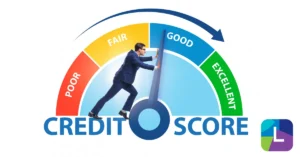Imagine living a life where your financial worries are significantly reduced, and you can still enjoy the things you love. Welcome to the world of frugal living—a lifestyle that emphasizes smart spending without sacrificing quality of life. Frugality is not about deprivation; rather, it’s about making intentional choices that lead to greater satisfaction and long-term happiness.
In today’s fast-paced consumer culture, finding ways to live better while spending less has become more important than ever. Whether you’re saving for a dream vacation or simply trying to make ends meet, embracing frugal habits can unlock countless benefits. Let’s explore how adopting this mindset can transform your relationship with money and offer practical tips for creating a fulfilling lifestyle on any budget.
Benefits of living frugally
Living frugally opens up a world of opportunities. It allows you to take control of your finances and build a safety net for the future.
One major benefit is reduced stress. When you’re not constantly worrying about bills, you can focus on what truly matters in life. This leads to greater overall happiness.
Frugal living also encourages creativity. Finding innovative ways to save can be fun and rewarding. You might discover new hobbies or interests along the way.
Additionally, it fosters gratitude. When you prioritize needs over wants, you start appreciating life’s simple pleasures more fully.
Adopting a frugal lifestyle promotes sustainability by reducing wasteful spending and consumption habits—helping both your wallet and the planet thrive simultaneously.
Mindset shift: Changing your attitude towards money
Changing your attitude towards money is essential for embracing a frugal lifestyle. It starts with recognizing that wealth isn’t measured solely by how much you spend but by what you save and invest.
Shift from viewing money as a means to instant gratification to seeing it as a tool for long-term goals. This perspective allows you to appreciate the value of every dollar spent or saved.
Practice gratitude for what you already have. Acknowledging your current resources can help diminish the desire for unnecessary purchases.
Challenge societal norms that equate spending with happiness. Instead, find joy in experiences, relationships, and creativity without breaking the bank.
By nurturing this mindset shift, you’ll pave the way for smarter financial decisions and ultimately enjoy life more fully while spending less.
Budgeting and tracking expenses
Budgeting isn’t just about restricting your spending. It’s a powerful tool to understand where your money goes each month.
Start by listing all sources of income. Next, track every expense—no matter how small. Apps can simplify this process, but a simple spreadsheet works too.
Categorize your expenses into essentials and non-essentials. This distinction helps you see what you genuinely need versus what you can cut back on.
Set realistic limits for each category based on your priorities and goals. Adjust these as necessary; budgeting is not static.
Review weekly or monthly to identify patterns or unexpected costs. This reflective practice keeps you accountable and in control of your finances.
Remember, the goal is clarity and awareness—not perfection! Embrace flexibility as life changes, allowing room for adjustments without stress.
Simple ways to save money on everyday expenses
Small changes can lead to significant savings. Start by reassessing your grocery shopping habits. Create a list before heading out and stick to it. This reduces impulse buys.
Consider bulk purchasing for non-perishable items like grains or cleaning supplies. It’s often cheaper per unit, saving you money in the long run.
Next, evaluate your subscriptions. Are there services you rarely use? Canceling even one can free up extra cash each month.
Don’t overlook energy costs; switch off lights when not needed and unplug devices that draw power while idle.
Transport is another area ripe for savings. Carpool with coworkers or friends whenever possible, cutting down on fuel expenses.
Take advantage of local libraries for books and movies instead of buying them outright. Access knowledge and entertainment without spending a dime!
Frugal living hacks for food, housing, and transportation
Eating well on a budget is possible with some creativity. Meal prepping can save you both time and money. Cook in bulk, portion your meals, and freeze what you don’t eat right away. This cuts down on food waste and helps avoid last-minute takeout.
Housing doesn’t have to break the bank either. Consider house hacking by renting out a room or finding a roommate. Not only does this lower living costs, but it also fosters community.
For transportation, think beyond owning a car. Public transit options are often cheaper than gas and parking fees combined. If biking is feasible for you, it’s an excellent way to stay active while saving cash on fuel expenses.
These small changes can lead to significant savings without sacrificing comfort or convenience in daily life. Embrace these hacks as part of your frugal journey and watch how they transform your spending habits over time.
Finding affordable entertainment and leisure activities
Entertainment doesn’t have to drain your wallet. There are countless free and low-cost options waiting to be discovered. Local parks often host events, ranging from concerts to movie nights under the stars.
Exploring community centers can also lead you to workshops or classes that pique your interest. Check local libraries for book clubs or author talks; they usually come at no cost!
If you love nature, hiking trails offer a perfect escape without spending a dime. Grab some friends and explore nearby paths for fresh air and beautiful scenery.
Volunteering is another satisfying way to spend your time while making a difference in your community. You’ll meet new people and gain fulfilling experiences along the way.
Don’t forget about online resources! Websites like Meetup can connect you with groups sharing similar interests—often leading to fun activities that won’t break the bank.
How to still enjoy luxuries while living frugally
Living frugally doesn’t mean giving up on the finer things in life. It’s all about finding balance and being resourceful.
Consider trying subscription services for luxury items or experiences that you can share with friends. This lets you enjoy high-quality products without overspending.
Look for local events offering complimentary access to art shows, concerts, or festivals. Many cities host free cultural events that provide a dose of entertainment without costing a dime.
Opt for budget-friendly splurges like visiting thrift stores or estate sales for unique finds. You can often discover vintage treasures at a fraction of retail prices.
Focus on meaningful experiences rather than material goods. A picnic with friends in the park can feel just as luxurious as dining out, especially when shared with loved ones and good food.
Long-term financial planning with a frugal lifestyle
Embracing a frugal lifestyle isn’t just about pinching pennies today. It’s a powerful strategy for crafting a secure financial future. By adopting frugality, you pave the way to smarter long-term financial planning.
Start by setting clear financial goals. Whether it’s saving for retirement, purchasing a home, or building an emergency fund, define what you want and when you want to achieve it. This clarity will guide your spending and saving decisions.
Investing is also crucial in this journey. Even with limited funds, consider putting money into low-cost index funds or retirement accounts like IRAs or 401(k)s. These investments grow over time and can significantly enhance your savings.
Another vital aspect is debt management. Aim to pay off high-interest debts first while maintaining manageable monthly payments on lower-interest obligations. Reducing debt not only saves interest but also frees up cash flow for other priorities.
Regularly reassess your budget as circumstances change—income fluctuations or new expenses may require adjustments to keep everything aligned with your goals.
Maintain an adaptable mindset toward unexpected costs that arise along the way, such as medical emergencies or job loss scenarios; having savings allows you to navigate these hurdles without derailing your overall plan.
Living frugally today sets the stage for greater wealth tomorrow—it’s all about making intentional choices now that lead to lasting security later down the road.




